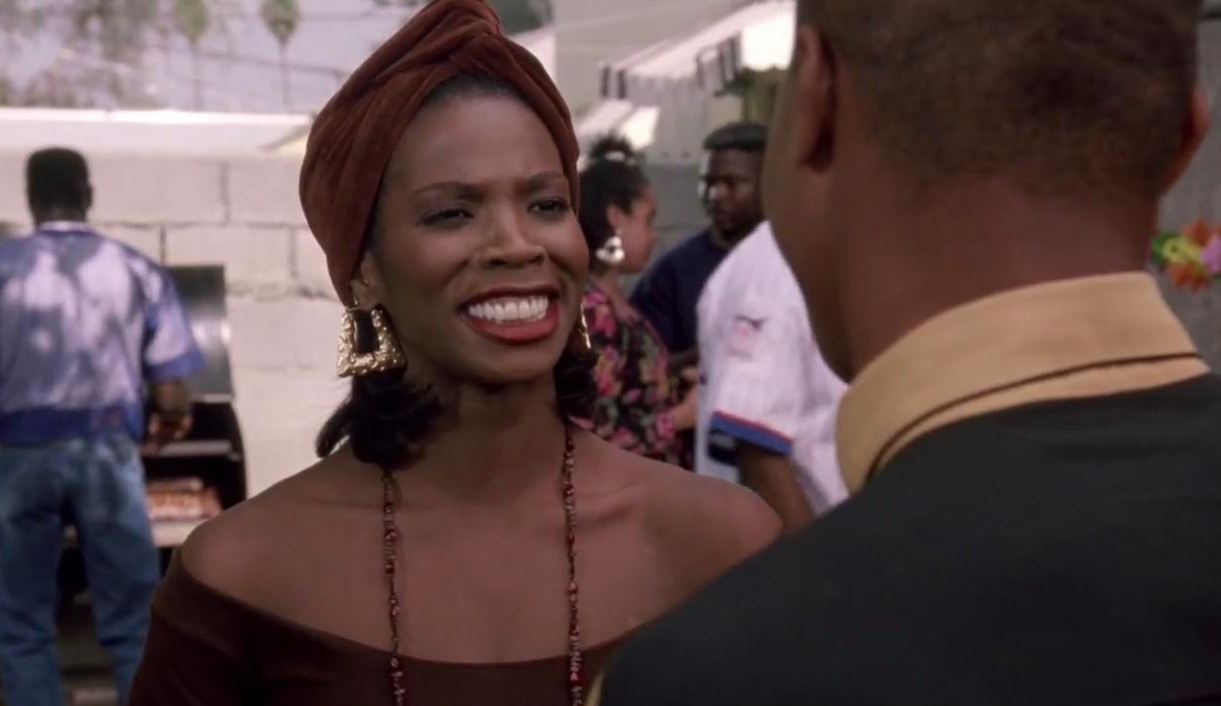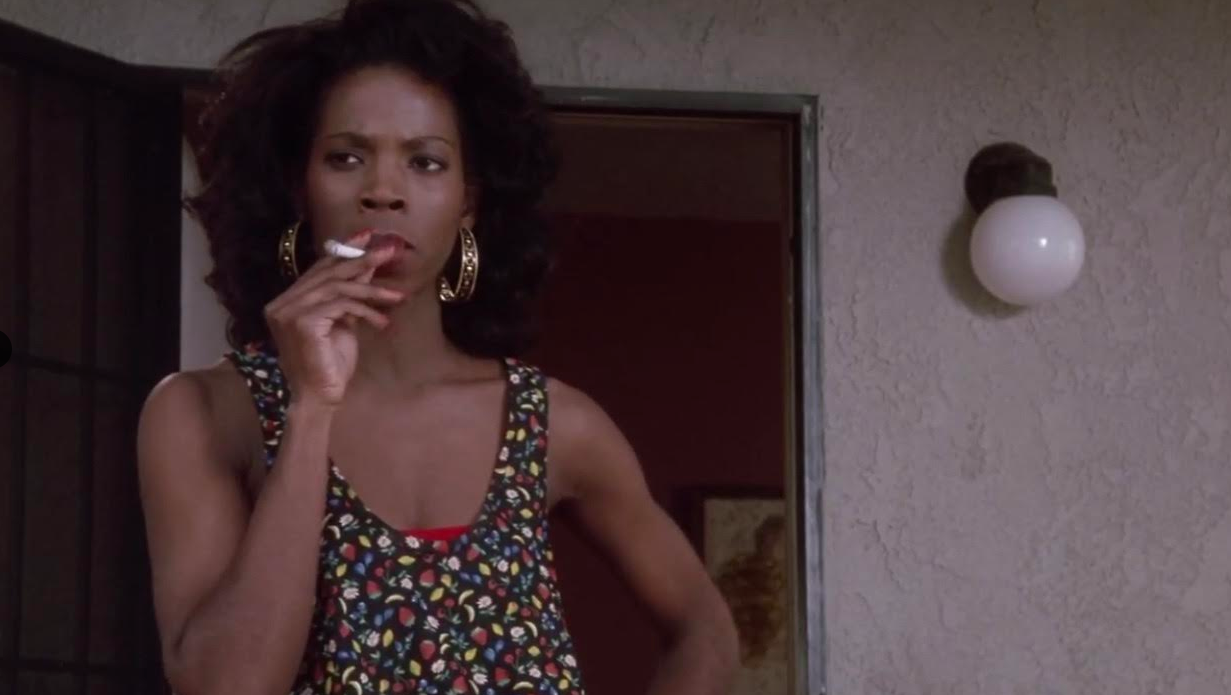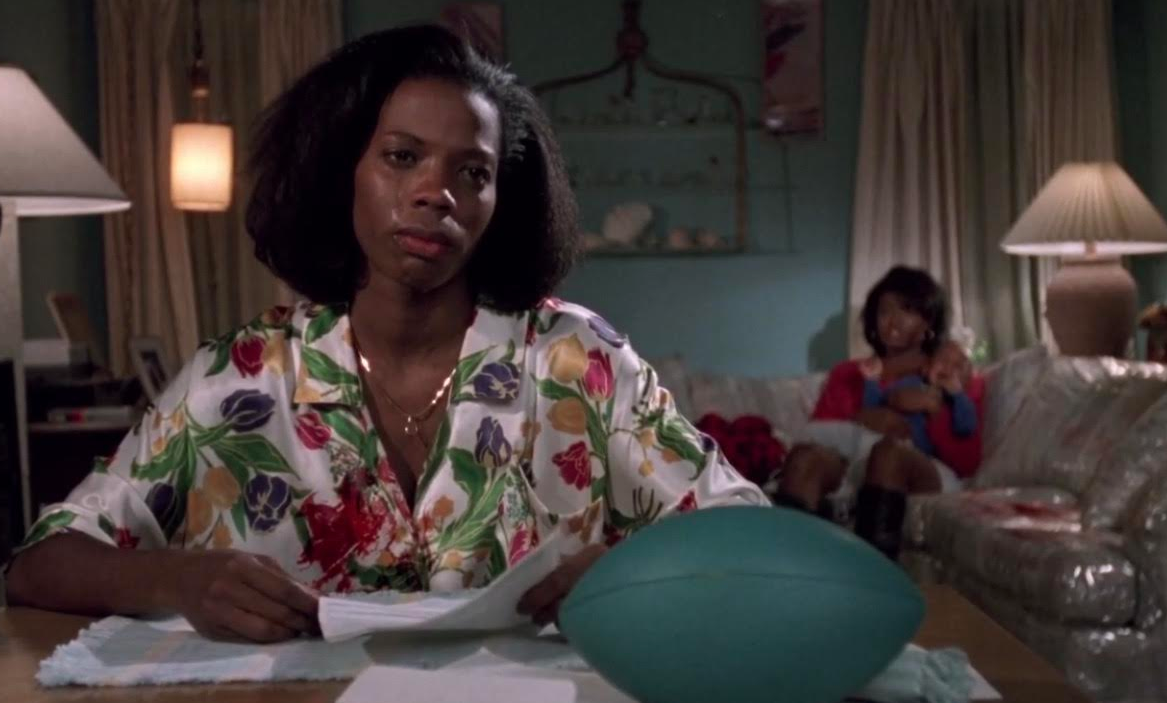Before each Smackdown (and the next is for 1991), Nick Taylor suggests Supporting Actresses from an alternate ballot...

What do you call the experience of watching a film with only one or two Oscar nominations to its name and discovering it’s one of the most jaw-dropping, accomplished films of its year? Maybe the Academy honored strong, worthwhile films across the board, maybe it didn’t, but you’re still left wondering how this stone cold masterpiece only got a modicum of the attention it so richly deserved. Case in point for 1991 is Boyz n the Hood, where writer/director John Singleton earned an Original Screenplay nomination and made history as the first black filmmaker ever nominated for Best Director. Boyz n the Hood ranks among the best of an Academy vintage that's largely filled with formally impressive, generically diverse, time-tested films. Its inclusion is even more exciting considering how easily it might not have happened. Who knows what chance it had of cracking the technical categories given how prescriptive those fields are against films as small as Boyz? On the other hand, the inability of Ice Cube or Laurence Fishburne to make headway in that anemic Best Supporting Actor lineup is another matter entirely. But the real topic for today’s sermon is the equally deserving and less regularly heralded performance from Tyra Ferrell, doing the most startling work of the female ensemble from the film's edges...
Boyz n the Hood opens with ten-year-old Tre Styles being sent to live with his father Furious (Laurence Fishburne) in Crenshaw by his mother Reva (Angela Bassett) after he gets in a fight at school. Reva tells Furious “I can’t teach our son how to be a man. That’s your job. ”, a line that hangs over Furious and Tre for the rest of the film. Living across the street (and just as haunted by that notion) are Tre’s best friends, Doughboy and Ricky who are raised by their mother Brenda Baker (Tyra Ferrell). Seven years later grown Tre (Cuba Gooding Jr.) is still living with his father and getting ready to go to college with his girlfriend Brandi (Nia Long), while Ricky (Morris Chestnut) is working to score high on the SATs and get an athletic scholarship. Ricky's brother Doughboy (Ice Cube) is simply trying to stay out of prison. Their everyday, edge of adulthood struggles are set in Southern L.A., against the backdrop of escalating gang violence and cops who are useless when they aren’t threatening, in the aftermath of two terms of President Reagan.

For all of Boyz n the Hood’s unambiguous declarations of theme and already weighty dilemmas, it’s remarkable how fully Singleton and his artists are able to deepen the film’s arguments. The cast is roundly committed to inhabiting their characters rather than playing stereotypes or kowtowing to likability. But where Boyz frequently stops for scenes of its men fraternizing and fighting and philosophizing, the women don’t get the same levels of attention from Singleton’s script. It’s one thing to watch Gooding Jr., Fishburne, and Ice Cube flourish with the considerable material Singleton gives them, but comparing what they have to work with, it’s almost more impressive to watch Bassett, Ferrell, and Long create such sturdy points of view in roles that seem designed primarily to orbit the men in their lives. Ferrell in particular is able to provide a full, layered characterization, making her own emotional and ethical claims on the film within the framework Singleton gives her.
Brenda is introduced in her most broadly written scene, berating 10 year-old Doughboy for not doing his chores before chatting up Tre on her porch until he leaves with her sons to explore. Ferrell doesn’t underplay Brenda’s anger at Doughboy or disguise her intentions when she speaks to Tre about Furious, but she also doesn’t vamp through it or milk her about-face for laughs. Her anger feels weary and fed-up but not indulgently scaled; it's like she’s had this conversation before and is tired of repeating herself. Her easiness with Tre is not just earnest but, as later scenes show, the more typical way Brenda interacts with other people. She’s a sharp, responsive person, fiercely direct in expressing herself but not easily provoked into acting demonstrative. Even when Doughboy is taken from her home arrested for shoplifting, she just takes a quick, dissatisfied look at the world around her, flicks away her cigarette, and retreats inside. It takes a lot to make her upset.

One of the first things we learn about Brenda is that she actively prefers Ricky to Doughboy. “Prefers” might be an understatement, given that she’s nurtured him since he was a boy to point him towards college, while holding no such ambitions for Doughboy. His friends suspect it’s because the two of them have different dads, and Brenda liked Ricky’s father better, though no one in the family bothers to explain it. It’s just a fact. Ferrell knows this too, and doesn’t waste time justifying Brenda’s choices or critiquing her favoritism. Instead, Ferrell lets Brenda’s bias emerge in gradations, sometimes finding other, complimentary reasons for why she’s reacting to one of her sons the way she is and foregrounding her preference explicitly. Her favoritism is a filter which completely informs her interactions with Doughboy and Ricky, yet Ferrell cuts such a shrewd, flinty observer that the audience can’t easily discount her point of view.
So, you can see why she might not take kindly to Doughboy calling the women at his welcome home party hoes (who threw it for him, I wonder?), though all she does to reprimand him is throw him a glare and slap his chest before telling everyone to be nice. Then again, when she smacks Doughboy in the face to stop him and Ricky from fighting and refuses to acknowledge him after they’ve stopped, you can’t quite picture her treating Ricky like that. Nor could you imagine her looking at Doughboy with any of the pride she is constantly emanating towards Ricky, the golden son who is so tantalizingly close to getting into college on an athletic scholarship and making something of himself, especially after the USC recruiter (John Cothran, excellent) comes to call. When Ricky suffers a hideous, irreparable setback, it's sadly fitting that she only seems able to accept it once she blames Doughboy, verbally and physically castigating him with all her strength. Boyz surely has a more rounded grasp of her son’s achievements and shortcomings, though this does nothing to diminish how Ferrell is able to conjure an entirely different perspective that still feels in line with what we know about these characters. Her investment in Ricky and dismissal of Doughboy doesn't feel rooted in projection or broad categorization but in lived experience, however compromised it might be.

Again, we're brought to Reva's declaration that only a father can truly raise his son, a line never explicitly related to Brenda but which hangs heavy over her house as the film progresses. How might we respond to her favoritism, to her conviction that everything she and Ricky have been working towards will pay off? How does this change once everything has gone disatrously wrong in spite those efforts? Singleton himself doesn't seem inclined to overtly indict her, though his more admirable depiction of Furious feels contrasted by how little Brenda is the actual focus of most of the scenes she's in. It's easy to imagine a less generous actress garishly leaning into the script's implicit ill will, but Ferrell's smartly controlled performance individualizes Brenda while giving her a credible point of view. Ferrell imbues her actions with as much thematic ramification as Boyz's most central players, without being reducible to the concepts put upon her by the film. Brenda, like everyone else, is simply trying to do right by hers, and that counts for a hell of a lot.